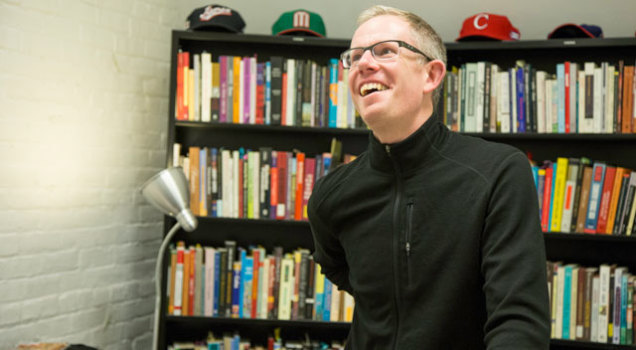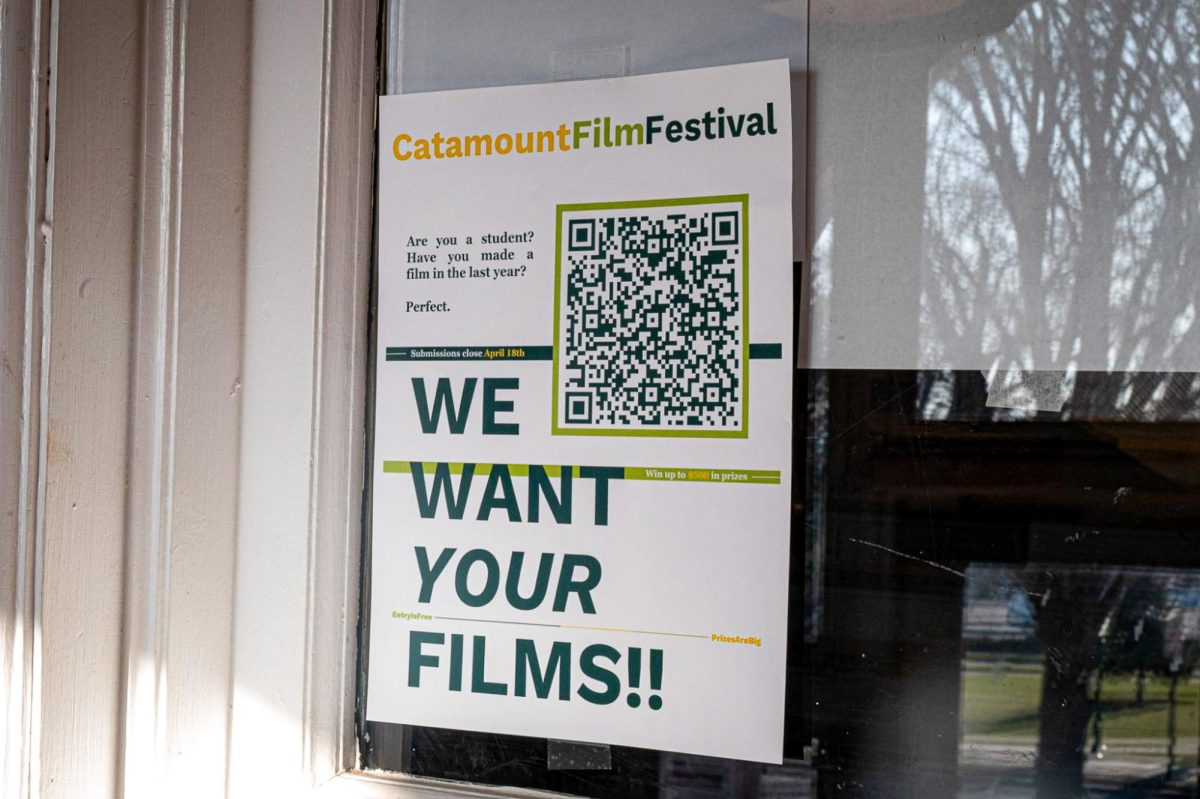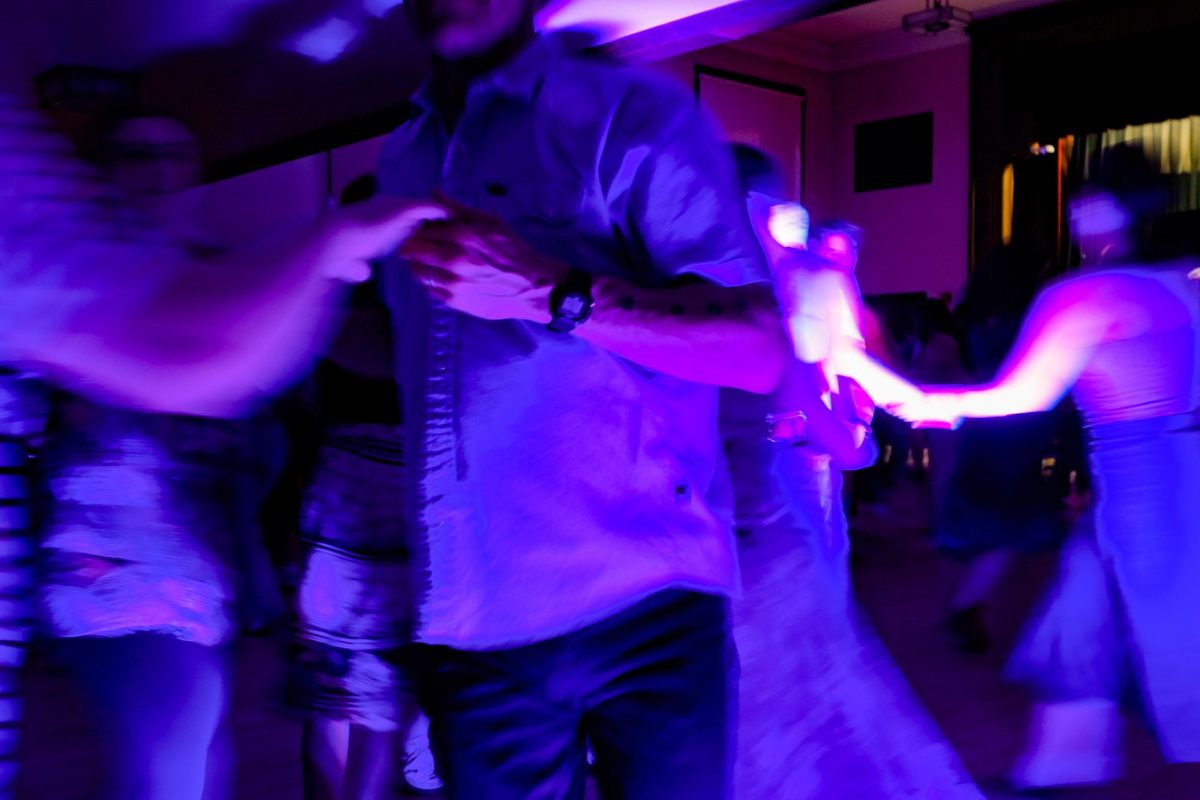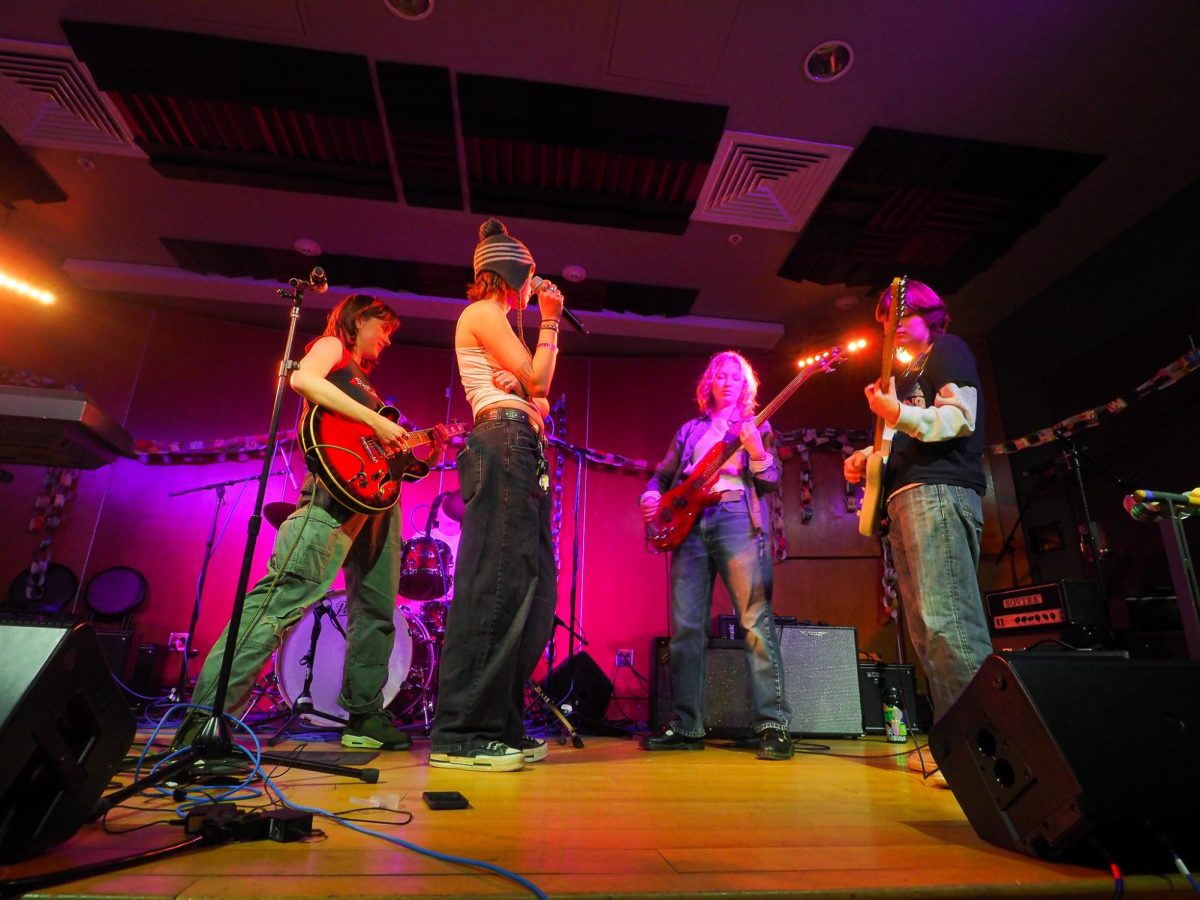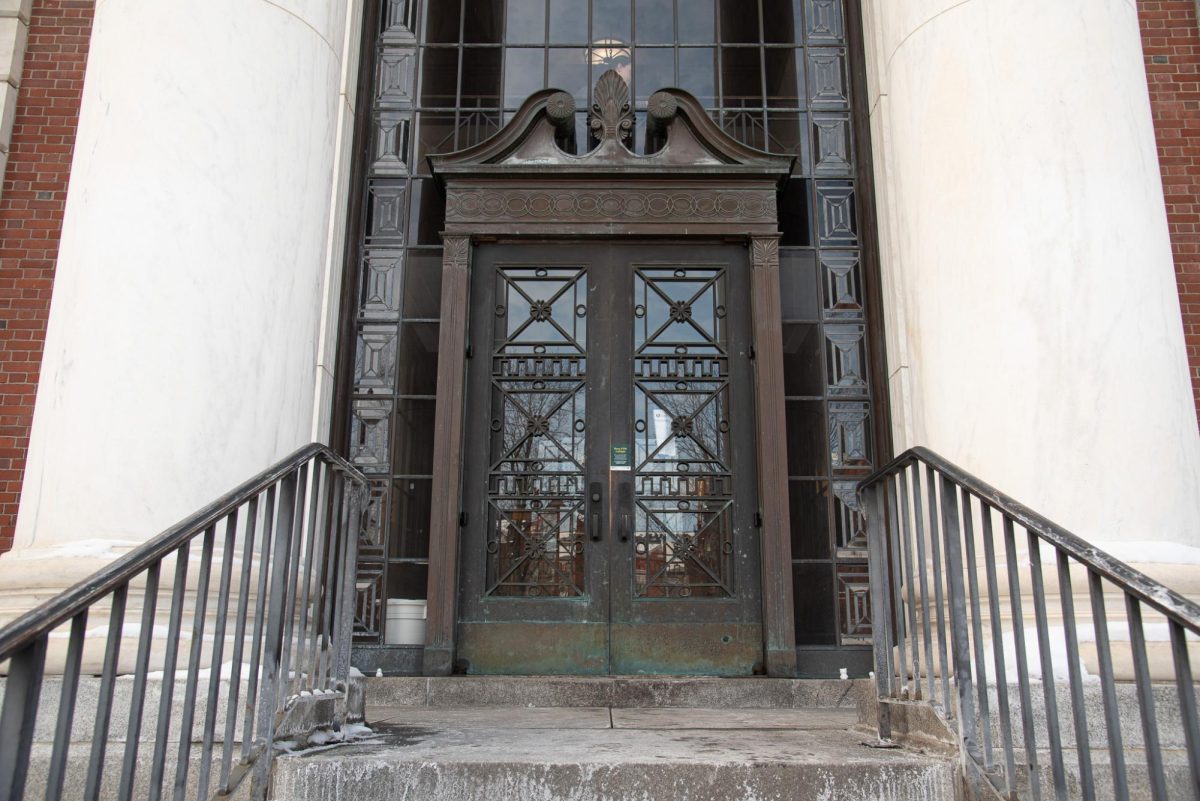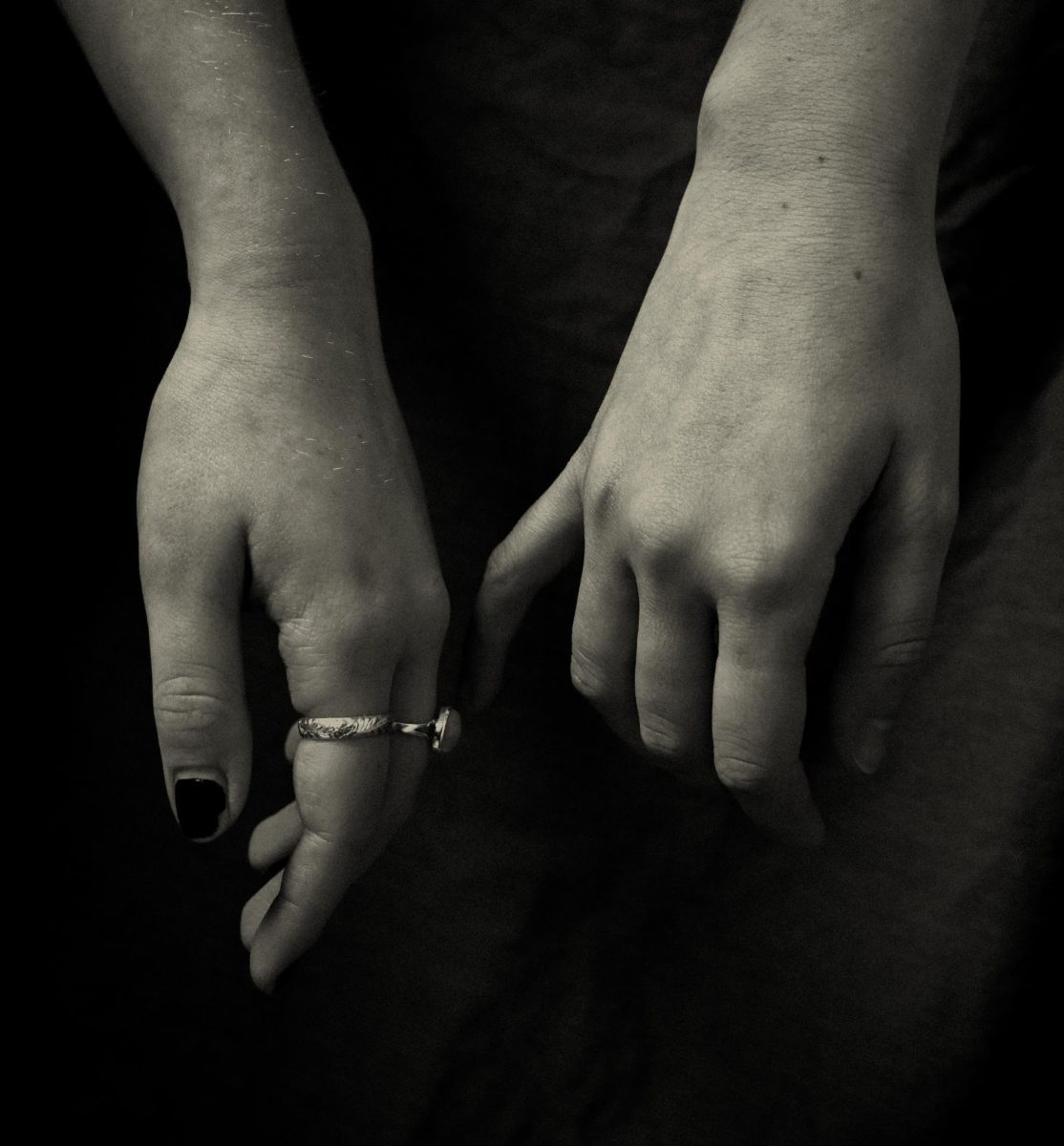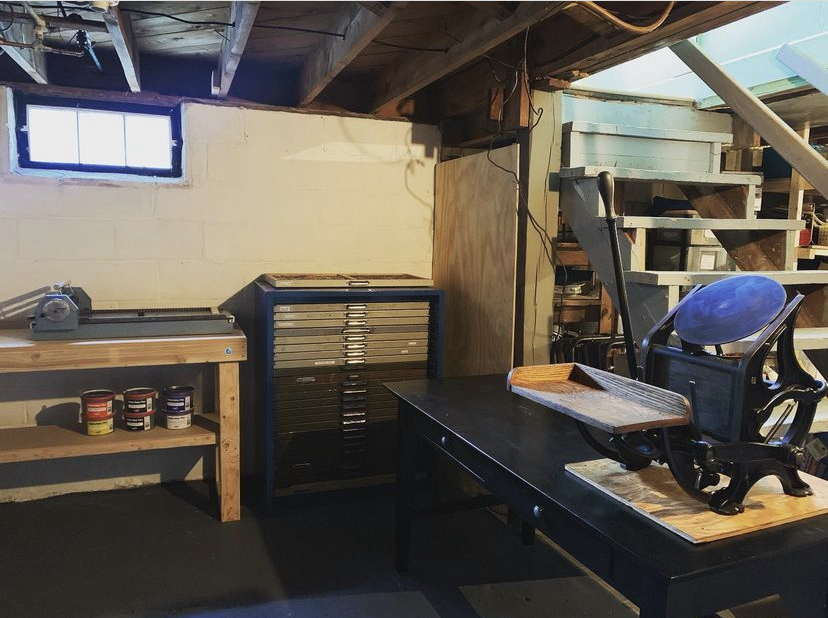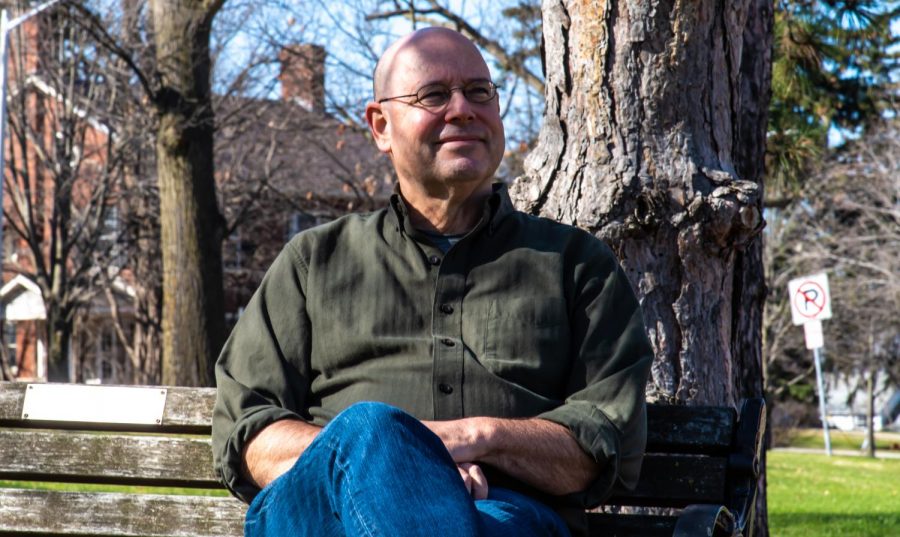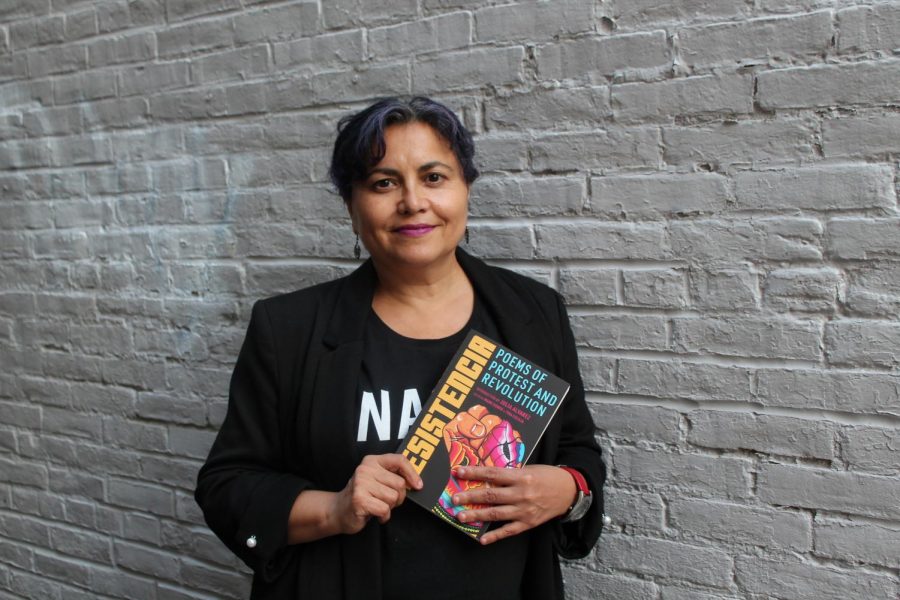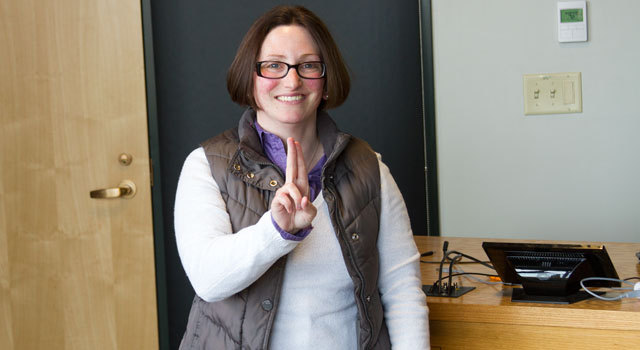FREDDY MORIN The Vermont Cynic
Assistant professor of anthropology Benjamin Eastman discusses his life inside and outside of the classroom in his office in Williams Hall
Nov. 5. Focusing on contemporary Cuba and Latin America, Eastman’s studies cover topics like socialism, nationalist ritualism and sports.
A standing desk, distaste for grades and respect for anthropological humility. Anthropology professor Benjamin Eastman sat down with the Cynic to answer some questions.
Vermont Cynic (VC): Do you have any upcoming projects?
Benjamin Eastman (BE): I’m in the middle of transitioning right now, away from the relationship between sports and politics in Cuba and looking more squarely at the recent economic reforms that Raúl Castro has inaugurated.
VC: If you had to write your past undergrad self a letter, what would you say?
BE: It really doesn’t matter what you major in, pay less attention to grades and cultivate an intrinsic interest. You should be learning for the sake of the learning.
VC: Do you have a current stance on giving grades?
BE: I hate giving grades.
VC: Why?
BE: They’re reductive. They diminish students’ learning. They really are not an accurate reflection of a student’s interests or engagement, or what they’re taking away from a course.
VC: I feel like we should talk about your desk — this is a special and large thing.
BE: It’s a new phenomenon. It’s called a standing desk.
Basically, sitting is killing us, and it’s rather frightening. This is much more dynamic.
VC: Do you ever sit?
BE: Occasionally.
VC: What’s something you’re really proud of?
BE: I’m proud of my relationship with my wife. I’m proud of my dedication to my students.
VC: If you were starting a band, what would you call it and what kind of music would you play?
BE: The Search for Animal Chin. It would probably play bluegrass funk.
VC: If you had to be a kitchen appliance, what kitchen appliance would you be?
BE: Espresso machine, [for] caffeination but also the combination of simplicity and complexity.
VC: How does anthropological study impact the way you live your life?
BE: Anthropology done well requires what I would call a devotion to humility.
You cannot understand the world, much less hope to change it, unless you stop thinking of yourself as the center of it. When I engage others around my house and my neighborhood and so on, I try to remind myself that my professional side is also a personal strength.


